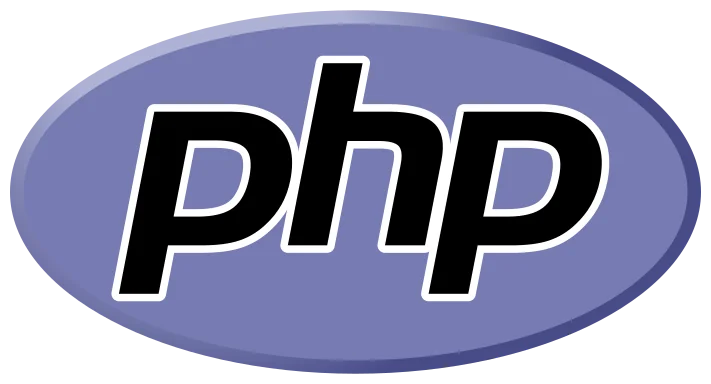If you don’t have a tech background, it can hard to know what is the right technology to use for your web app. If you are outsourcing, how can you make sure that your developers are using a language and framework that are suitable for your project? PHP frameworks and .NET are two commonly used groups of frameworks for web development, but can also be used for mobile development.
[UPDATE 04/19/2022: A side effect of the vast popularity of PHP is that it can be difficult to find the best developers for your team. If you're not super familiar with the language and its many, many frameworks, it can be pretty daunting to try to hire a PHP developer. That's why we wrote a guide here to help you avoid common hiring pitfalls and know where to look for your next PHP team.]
PHP vs .NET
Rather than telling you which to use, we’ll provide you with the necessary information to equip you with adequate decision making skills. Let’s first break down PHP (the language and popular frameworks for the language) and .NET (the framework) independently.
PHP

Originally created in 1994, PHP stood for Personal Home Page. However, as the language evolved, so did the acronym, and it's now the recursive acronym PHP: Hypertext Preprocessor. This language is executed on the server side, which means all of the computing and processing happens on the server rather than your own browser on your computer. The server simply returns the HTML, CSS, images, files, etc. to your browser to display.
As PHP is able to run on various platforms, it is also compatible with almost every server that would be used today. PHP is free to download and use, and has amassed a wide following, making it one of the most popular web development languages out there. PHP also supports a wide variety of databases, though the most popular one is MySQL. Need help choosing a database? Check out our article on relational vs. non-relational databases here.
When using PHP for web development, it is common to use PHP frameworks. A framework is a basic structure that helps streamline the development by eliminating the need to build commonly used components from scratch. If you're looking to build something simple that might not require a web application or are unsure, check out our article on the difference between web apps and websites here. Frameworks help establish responsiveness and strength, so they will no doubt continue to play a big part in web development. Let’s break down three popular PHP frameworks with their respective advantages.
Laravel
The most popular PHP framework by far, Laravel has taken the development space by storm since its launch in 2011.
- Laravel is a fast framework that can handle complex builds
- It has strong security
- It comes with tons of features that help you with customization
- Laravel adoption is ever increasing, making it easy to find Laravel developers
Yii
A universal framework, Yii is a component based framework that is used for all types of web apps. Is it really? Yes, it is! (Yii).
- Yii has a really strong community which is great for posting troubleshooting, support, questions, etc. on forums
- It performs at high speeds and also has great security features
- It has a crazy easy installation process (but it does have a higher learning curve for deep customization)
CodeIgniter
A relatively small framework in terms of size, CodeIgniter is quick and easy. Commonly used for dynamic websites, it's a straightforward framework to use.
- This framework is great for beginners since it is easy to set up and navigate
- It is faster than other frameworks, due mostly to its size
- It has great documentation
.NET

Built by Microsoft, .NET is a framework with wide accessibility that is designed to work with many different programming languages. Originally released in 2002, .NET has had many updates, continuing to strengthen itself as a framework over time.
.NET framework supports a handful of languages, including VB.NET, C#, C++ and F#. However, there is also a newer framework released by Microsoft: .NET Core.
.NET Core and .NET (this includes ASP.NET, a framework used for web applications) share similar APIs, which are called .NET Standard. So from a high level, there are tons of similarities to the two frameworks, but they are used for different purposes.
.NET Core is primarily used as a cross-platform framework, meaning it can be used to develop applications on many platforms and remain in its one framework. The downside of this is that .NET Core does not include all of the features and amenities as .NET, and thus, is poses limitations in its builds. Limitations include:
- It isn’t fully compatible with VB.NET or F#
- It lacks support and comprehensiveness in Windows Forms, Apps, and some 3rd party libraries
If you are planning to build smaller modules and independent applications, then it might make more sense to go with .NET Core. Furthermore, if you are running multiple .NET applications simultaneously, it may make more sense to stick with .NET Core. However, if you’re looking more towards enterprise level applications that deal with security, high memory and complex data structures, then .NET framework would be for you.
PHP vs .NET in Summary
While both PHP and .NET are both well suited to developing web applications, it's important to make your final decision based on where your priorities lie. Both PHP and .NET have a strong and active community, which means your development team will receive plenty of support. Both can handle a high amount of traffic even at enterprise levels, but PHP has a smaller learning curve, making it better suited for startups and small businesses.
In general though, PHP frameworks are much more popular among developers compared to .NET, so it will be easier to find developers that have experience with PHP frameworks.
Need more help deciding between PHP and .NET? Send an email over to resources@aloa.co and we'd be happy to help!

